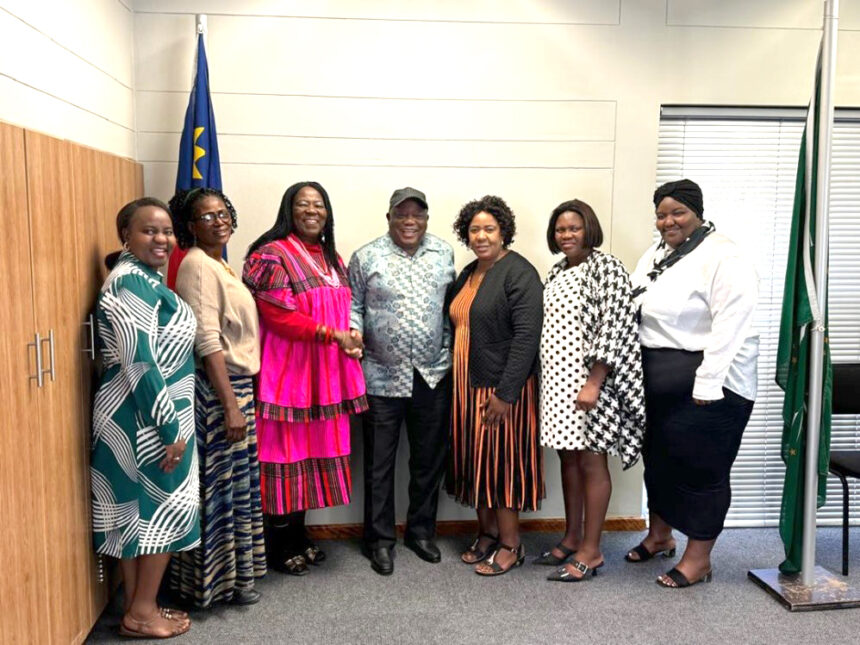George Sanzila
The year 2024 has brought a stark and painful reality to the Ohangwena region. Amidst a growing crisis, distressing numbers reveal a severe malnutrition epidemic affecting children under five. Recent reports expose a dire situation: 510 outpatient visits for malnutrition, 705 children enrolled in health programmes, 244 hospital admissions, and, tragically, 18 deaths – including 4 adults – due to severe malnutrition.
Dr Odon Nkongolo, the chief medical officer in the Ministry of Health and Social Services in Ohangwena, voiced the anguish of a community in crisis during a visit from the Parliamentary Standing Committee on Gender Equality, Social Development and Family Affairs.
“One life lost is too many. We face both undernutrition, which leads to wasting, stunting or underweight in children, and overnutrition, which results in overweight and obesity. Addressing these issues requires a concerted effort from all sectors of society,” he stated.
Struggle
In the heart of this battle are Ohangwena’s healthcare facilities, including the district hospitals of Engela, Eenhana and Okongo, alongside health centres in Odibo and Ongha, as well as 31 primary healthcare clinics scattered throughout the region. Additionally, 163 fixed outreach points extend vital services to remote areas. Despite their relentless efforts, the statistics paint a grim picture.
Nkongolo stressed the urgent need for increased support.
“We need food banks in our region. Ohangwena is the most-populated and poorest region. I plead with members of parliament to advocate for social grants and employment creation,” he said.
Solutions
The crisis has sparked calls for innovative, long-term solutions. Rebekka Shipa, the inspector of education at the Eenhana circuit, has highlighted practical interventions.
“We urge lawmakers to develop programmes that provide water access through boreholes. This would enable families to grow small backyard gardens, promoting self-sufficiency and improving food security,” she emphasised.
Malnutrition
In response to the crisis, the health ministry has launched several key initiatives.
One of them is the Nutrition Assessment and Counselling Services’ (NACS) programme, which plays a crucial role in offering routine growth monitoring, food supplementation with plumpy nuts, and breastfeeding promotion. The ministry also provides deworming and vitamin A supplementation during vaccination campaignsAdditionally, disability support is granted, and clients are referred to the Ministry of Gender Equality, Poverty Eradication and Social Welfare for comprehensive assistance, aiming to tackle the multifaceted issue of malnutrition.
School-feeding
More so, the school-feeding programme is a critical component in the fight against malnutrition.
This year, the education ministry ordered 75 184 bags of essential food supplies for the programme.
However, these supplies have yet to be delivered, worsening the crisis among students.
Maria Nakwatumba, a senior administrative officer under the Ministry of Education, Arts and Culture, revealed the gravity of the situation.
“With 89 810 learners relying on this vital initiative, the delay in supplies is dire, highlighting the immediate need for nutritional support and systemic issues affecting programme delivery,” she said.
Call to Action
The situation in Ohangwena underscores an urgent need for comprehensive solutions, and increased support.
Local leaders, health workers and community members are rallying for more resources and systemic changes to address both immediate needs and long-term challenges. As the region grapples with this critical issue, the dedication of its health services and the resilience of its community offer a glimmer of hope. With continued advocacy and support, there is a path forward to alleviate suffering and build a healthier, more self-sufficient future for all.
*George Sanzila works for the Namibian Parliament in the Division: Research, Information, Publications and Editorial Services.



